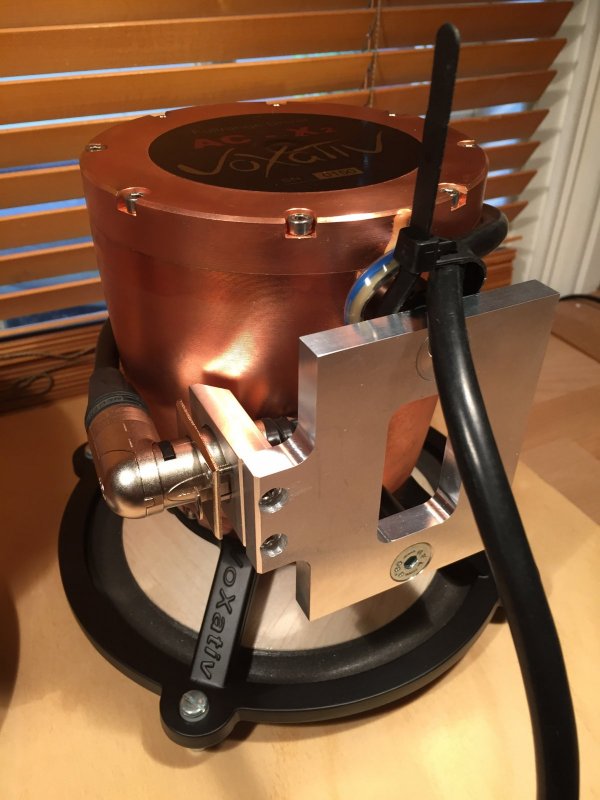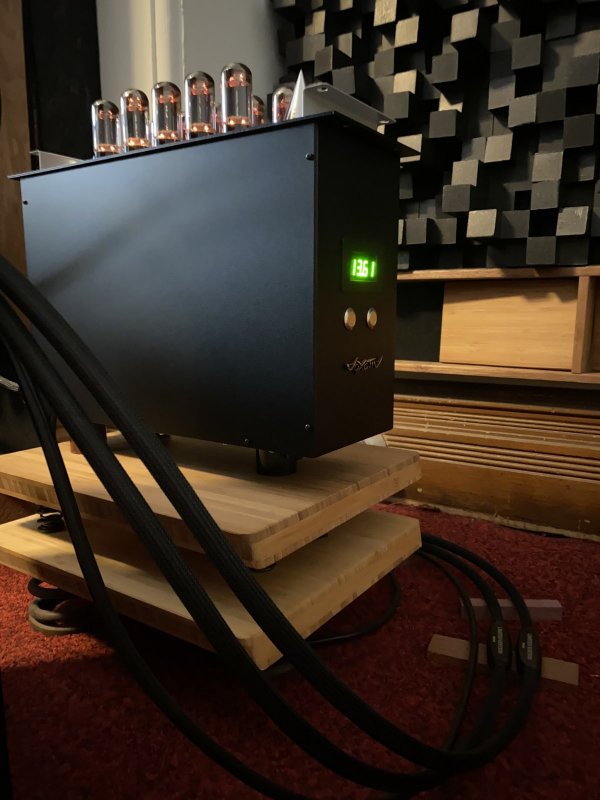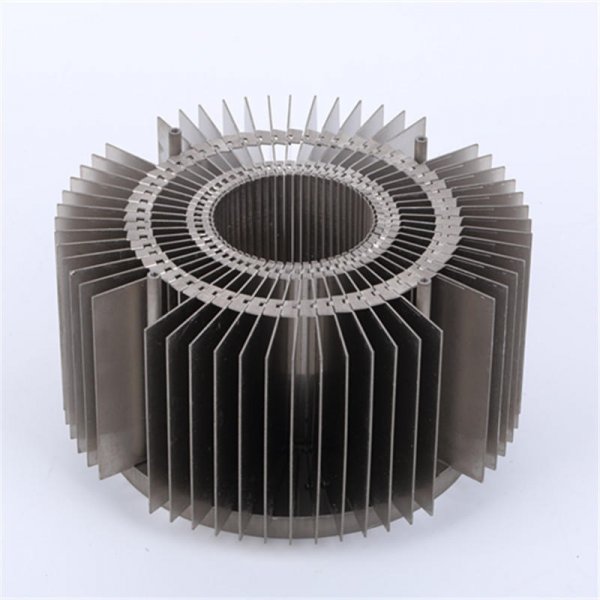was that article about Field Coil or perm magnet speakers? (do you have a link or a hint whre the article resides?)I found a paper once that demonstrated more than 3dB drop even from short bursts heating the VC. The heat ramps up very quickly with power input but cools down relatively slowly due to limited air flow in the gap. Forced cooling will help both in the initial heating and recovery.
Field Coils for Audio Systems
- Thread starter Audiophile Bill
- Start date
You are using an out of date browser. It may not display this or other websites correctly.
You should upgrade or use an alternative browser.
You should upgrade or use an alternative browser.
It’s about the voice coil heating up…doesn’t matter what magnet type. The wire resistance goes up with heat. The magnet getting hot would also have an impact but I think it would not get hit quickly like the voice coil.was that article about Field Coil or perm magnet speakers? (do you have a link or a hint whre the article resides?)
i thought we were talking about bass like something here with power supplyI think it depends a lot on the construction of the coil and enclosure. On my RCA1443, an infrared thermometer has never shown more than ~35C, even after 12 hours of use.
But then the driver weighs about 30lbs. It’s built like a tank!


old field coils tend to run at 80-250 volts and low current, the new field coils mostly at 5-20 volts with a high current of 2-10 amperes, which causes heat. the airgap voicecoil gets even tighter in the heat. that can be really a problem.
Last edited:
My Classic Audio field coil drivers run on 12V/1A. This is only 12 watts, which can be easily dissipated. I do not feel any rise in temperature after a whole evening of music.i thought we were talking about bass like something here with power supply
View attachment 97804View attachment 97805
old field coils tend to run at 80-250 volts and low current, the new field coils mostly at 5-20 volts with a high current of 2-10 amperes, which causes heat. the airgap voicecoil gets even tighter in the heat. that can be really a problem.
My Classic Audio field coil drivers run on 12V/1A. This is only 12 watts, which can be easily dissipated. I do not feel any rise in temperature after a whole evening of music.
Hi Adrian - is this for woofers or the CD or both?
Best.
i thought we were talking about bass like something here with power supply
View attachment 97804View attachment 97805
old field coils tend to run at 80-250 volts and low current, the new field coils mostly at 5-20 volts with a high current of 2-10 amperes, which causes heat. the airgap voicecoil gets even tighter in the heat. that can be really a problem.
There should be only small difference between heat generation between a high voltage / low current motor versus low voltage / high current if the wattage is a constant between both systems, which it would need to be to generate the same levels of flux. The tighter wire layering in low voltage / high current motor might lead to slightly more heat.
The issue of air gap shrinking with heat is interesting as the flux of the system will be increasing with heat. So I guess one needs to let their motor get to steady state heat for a constant flux if (and only if) the gap is changing in a material way to impact flux by any relevant margin. Would he really interesting to see the data.
Actually, I think the losses will be less as the heat is more from current flow. This is why they run power lines at 100K V or more to minimize losses in the power lines. High voltage/low current should have fewer losses...I think.There should be only small difference between heat generation between a high voltage / low current motor versus low voltage / high current if the wattage is a constant between both systems, which it would need to be to generate the same levels of flux. The tighter wire layering in low voltage / high current motor might lead to slightly more heat.
The issue of air gap shrinking with heat is interesting as the flux of the system will be increasing with heat. So I guess one needs to let their motor get to steady state heat for a constant flux if (and only if) the gap is changing in a material way to impact flux by any relevant margin. Would he really interesting to see the data.
What do you mean you don't feel any rise in temperature? You mean you put your hand on the back of the driver that houses the field coil and it doesn't get any warmer?My Classic Audio field coil drivers run on 12V/1A. This is only 12 watts, which can be easily dissipated. I do not feel any rise in temperature after a whole evening of music.
in the case of a field coil with a high current, there is a second factor. how thick the wire of the coil is thinner wire high heating thicker wire less heat. a complex topic. would also like to see measurements on the subject. if the housing gets really warm then it's rather too late then the devil is going on inside.
Actually, I think the losses will be less as the heat is more from current flow. This is why they run power lines at 100K V or more to minimize losses in the power lines. High voltage/low current should have fewer losses...I think.
So you are saying you think that high voltage / low current will get hotter in the gap than low voltage / high current?
I asked same question to my field coil engineer guy and he reckons the tighter wire layering needed when making a low voltage / high current motor might lead to slightly more heat generated so slightly hotter.
Heat is definitely an important consideration with these drivers ime, especially if you are after very high flux.
in the case of a field coil with a high current, there is a second factor. how thick the wire of the coil is thinner wire high heating thicker wire less heat. a complex topic. would also like to see measurements on the subject. if the housing gets really warm then it's rather too late then the devil is going on inside.
The question also I guess is what is the devil? Is the issue that the hot temperatures can degrade the coil insulation / shorten life of the motor? This is what I have heard from 2 separate field coil designers fyi. Or is it the associated problems with damage to adjacent driver components like glue of diaphragm or damage to voicecoil etc?
That would be just the midrange. If the woofers are field coil as well the current is higher. I run mine at a slightly higher voltage too.Hi Adrian - is this for woofers or the CD or both?
Best.
The field coils definitely warm up. The heat they make isn't going to change much if you run high voltage low current or the other way around because its all about the work being done. At any rate that's different from heating the voice coil.
I agree that i expect only small differences in heat if wattage output is same for each motor scenario.That would be just the midrange. If the woofers are field coil as well the current is higher. I run mine at a slightly higher voltage too.
The field coils definitely warm up. The heat they make isn't going to change much if you run high voltage low current or the other way around because its all about the work being done. At any rate that's different from heating the voice coil.
Heating voice coil isn’t related to this topic per se unless the internal temperature of the motor climbs very high indeed and the pole itself gets extremely hot in which case the voicecoil would get hotter due to its very close proximity to the pole. I am aware of the normal voicecoil heating situation as I have written previously on these pages above.
No the opposite. High voltage/low current will get less hot.So you are saying you think that high voltage / low current will get hotter in the gap than low voltage / high current?
I asked same question to my field coil engineer guy and he reckons the tighter wire layering needed when making a low voltage / high current motor might lead to slightly more heat generated so slightly hotter.
Heat is definitely an important consideration with these drivers ime, especially if you are after very high flux.
Hm. Since its assumed that both approaches make the same magnetic density, it follows that the same losses will occur in the wiring- higher voltage- thinner wire... So I would expect no difference with regards to heat.High voltage/low current will get less hot.
Well that is in agreement with what my friend told me as I wrote above albeit he said doubtfully much difference at all - his reason was as I provided above.No the opposite. High voltage/low current will get less hot.
Mains transformers or DC coils are now usually vacuum-impregnated to ensure a high level of electrical operational reliability if mains voltage can be transported in the event of a fault.The question also I guess is what is the devil? Is the issue that the hot temperatures can degrade the coil insulation / shorten life of the motor? This is what I have heard from 2 separate field coil designers fyi. Or is it the associated problems with damage to adjacent driver components like glue of diaphragm or damage to voicecoil etc?
I don't know about the old field coil because I've never disassembled a field coil bass
Rather, I think a defect in the voice coil or the membrane is more likely due to heat. It's pure speculation on my part with no evidence.
P.S
transformer insulation only melts immediately above 160 degrees no panic.
These are stunning!i thought we were talking about bass like something here with power supply
View attachment 97804View attachment 97805
old field coils tend to run at 80-250 volts and low current, the new field coils mostly at 5-20 volts with a high current of 2-10 amperes, which causes heat. the airgap voicecoil gets even tighter in the heat. that can be really a problem.
High voltage/low current vs Low voltage/high current, with the latter producing more heat is interesting. This could be why the RCA1443 is claimed to sound better than the 1428. They are identical, except for voltage/current.
RCA1428 - 13V/1.7A
RCA1443 - 115V/0.17A
Similar threads
- Replies
- 1
- Views
- 325
- Replies
- 52
- Views
- 4K
- Replies
- 4
- Views
- 2K
- Replies
- 1
- Views
- 220
| Steve Williams Site Founder | Site Owner | Administrator | Ron Resnick Site Owner | Administrator | Julian (The Fixer) Website Build | Marketing Managersing |







